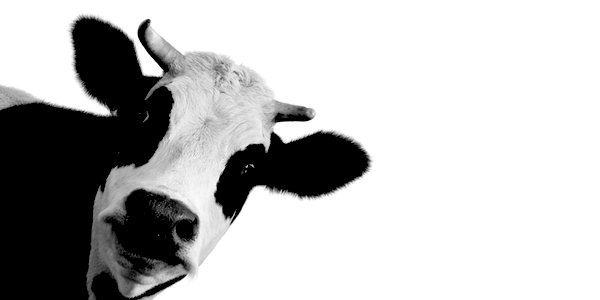PUTTING the world back on track to meet the Paris goal of limiting global temperature rises to 1.5C above pre-industrial levels is the challenge facing the faithful meeting for COP28 in Dubai this week. Or, as the sceptic might put it, the burning question of how to keep their Net Zero gravy train on the road.
Darwood Zaelke, President of the Institute for Governance and Sustainable Development, thinks methane is the answer. Less of it, he told the 40,000 delegates, may ‘just make it possible to keep 1.5C alive’. For the uninitiated, ‘methane is the blowtorch that is boiling the planet’. So ‘turn it off, and you immediately turn down the heat’. Bingo.
Looking out of my Swiss home at the six inches of snow that had fallen overnight, I have to say this was a new one to me. I wondered, would our eco-friendly monarch, setting off to join the throng in his private jet, enlighten me?
Well, his opening statement was an indisputable call to political arms. He warned the assembled oil sheiks, billionaire philanthropists and vast numbers of sustainability bureaucrats that the world was dreadfully far off-track, approaching ‘tipping points’, and then it came, the m-word – since the 2015 Paris Agreement, there was almost 40 per cent more methane in the atmosphere.
Methane again. Are fossil fuels boiling the planet no longer the menace? Was this a diversion from the heavy snow and ice that has frozen jets in Munich bound for Dubai’s global warming conference? Or, more likely, to divert from the off-message headlines scheduled for the next day’s papers that ‘billions of US funding hasn’t convinced the developing world to ditch coal’? Was it to divert from the truth bomb dropped by the COP president himself right at the start of the conference? Dr Al Jaber made it clear that ‘there is no science behind demands for phase-out of fossil fuels’ and what’s more, ‘there is no science out there, or no scenario out there, that says that the phase-out of fossil fuels is what’s going to achieve 1.5C’.
No wonder there’s been this rapid repositioning from fossil fuels to methane as the climate saviour. And it’s such a good story to sell. Just a little research will tell you that methane concentration in the atmosphere has increased by around 160 per cent since the mid-18th century; most of it, Wikipedia says, caused by human activity. It’s not its use as a fuel for ovens, homes, water heaters, kilns, cars, turbines, or that it can be transported as liquefied natural gas (LNG) or its importance for electricity generation that matters. For, compared with other hydrocarbon fuels, it produces less carbon dioxide for each unit of heating produced.
No, it’s about the major sources of methane which include wetlands, the largest natural source at 20-30 per cent of atmospheric methane, rice cultivation at 12 per cent and farm animals (human-induced methane!) a dreadful 44 per cent. And what is increasing the amount of methane released from wetlands but climate change and greedy meat-eating people? Livestock methane is the new global warming bogeyman, and cows are the target. The solution? I see that Bill Gates’s wheeze of feeding cows with seaweed is one. And how the idea has taken off! A dozen ‘deep-pocketed philanthropies’ (several of the usual suspects – Bezos Earth Fund, Bloomberg Philanthropies, and the Sequoia Climate Foundation) are busy following Gates’s suit with a promised $450million investment in ‘tackling’ methane over the next three years.
That’s not enough, though. COP’s co-ordinators will be content with nothing less than a legally binding summit agreement which is one of this year’s priorities.
For the moment cows may be lucky to escape with a seaweed diet. The research firm Kayrros, which tracks methane emissions, is calling for an outright ban on ‘super-emitters’ (read that obit to the Dutch farmers) which, they aver, could lead to a reduction of 0.1 degree C in global temperature by mid-century. (Wow!)
Into this field of philanthropic meddling steps the French yoghurt maker Danone. The company that made its fortune out of cows may well become the author of their demise as the first corporation to join the Global Methane Hub’s Enteric Fermentation R&D Accelerator. Its aim is to ‘create new scalable and practical solutions for dairy farmers to reduce methane emissions’. Already $200million has been raised to invest in breakthrough innovation, including ‘the mitigation of methane’ via feed additives, plant and animal genetics, methane vaccines, and accessible measurement technologies.
It will have immediate benefits for the climate, superior to that of carbon dioxide reduction alone, claims the Intergovernmental Panel on Climate Change (IPCC). Indeed.
Danone’s action plan, which includes the reduction of methane emissions from its fresh milk supply chain by 30 per cent by 2030, and a ‘sustainability roadmap – the Danone Impact Journey’, will assist dairy farmers’ ‘transition to regenerative dairy practices’. Whatever they may be.
This is not just a repositioning of aspirational climate targets from fuel to farmland and food, but concrete repositioning of international food conglomerates to go with it – from straightforward food producers to woke climate change revolutionaries in the guise of ‘global philanthropies’.
It may prove a risky business. Danone’s gross profits have declined sharply. Perhaps the company should take a leaf out of Bud Light’s ‘How not to do it’ marketing manual, and stick to what it knows. Even better, allocate some of its previous super-profits to reducing its prices, to help the dairy producer and consumer at a time of rampant food price inflation.
The worry is that as these corporations blunder into global climate change control freakery, we’ll be finding ourselves in another pandemic/crisis scenario so familiar from the last few years. Methane vaccines? An outright ban on organic dairy products? Government buying up and repurposing dairy farms? The very idea should send shivers down the spine of dairy farmers and consumers of their good, healthy, unadulterated products.

